 W
WJuan José de Aycinena y Piñol was an ecclesiastical and intellectual conservative in Central America. He was President of the Pontifical University of San Carlos Borromeo from 1825 to 1829 and then of the Universidad Nacional from 1840 to 1865. He was a thinker criticized by liberal historians for his strong relationship with the conservative government of General Rafael Carrera and for eliminating the possibility of getting the Central American Union which the Liberals wanted. His participation in the government has been assessed more objectively in research conducted between 1980 and 2010. He was heir in 1814 to the noble title of III Marquess of Aycinena, and bishop in partibus of Trajanopolis from 1859. He had a taste for law, oratorical talent and wrote over twenty works.
 W
WMariano de Aycinena y Piñol (1789-1855) was wealthy and influential Guatemalan merchant family and an important conservative politician. A younger son of the first marquis of Aycinena, peninsular-born Juan Fermín de Aycinena (1729-1796), Mariano was a leader of Guatemalan independence from Spain. He served governor of the State of Guatemala in the Central American Federation from 1 March 1827 to 12 April 1829 and patriarch of the Aycinena family. The family had the commercial monopoly in Central American during the Spanish colonial era later year thanks to the Consulado de Comercio. He was one of the signatories of Central American independence and lobbied heavily for the annexation of Central America to the Mexican Empire of Agustín de Iturbide. This arrangement would keep the family's economic position and privileges following independence. After being expelled along with the Aycinena family in 1829 after being defeated by Francisco Morazán, went into exile in the United States and then to Mexico. He came back to Guatemala after the conservatives had allied with general Rafael Carrera; but then he retired from public life and hand the Aycinena family leadership to Juan José de Aycinena y Piñol.
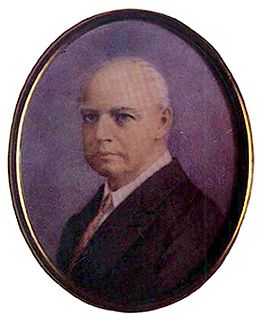 W
WPedro de Aycinena y Piñol was a conservative politician and member of the Aycinena clan that worked closely with the conservative regime of Rafael Carrera. He was interim president of Guatemala in 1865 after the death of president for life, general Rafael Carrera.
 W
WManuel Lisandro Barillas Bercián was a Guatemalan general and acting president of Guatemala from 6 April 1885 to 15 March 1886 and President from 16 March 1886 to 15 March 1892. He was born in Quetzaltenango, and assassinated in Mexico City in 1907.
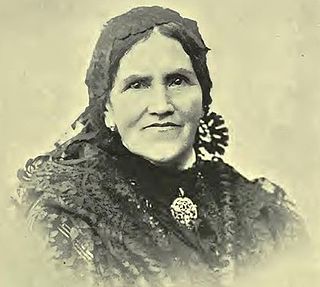 W
WCelia Barrios Mazariegos de Reina was the mother of President José María Reina Barrios and the 1st First Mother of Guatemala, and the sister of President Justo Rufino Barrios.
 W
WJusto Rufino Barrios Auyón was a Guatemalan politician who was President of Guatemala from 1873 to 1885. He was known for his liberal reforms and his attempts to reunite Central America.
 W
WJuan Martín Barrundia Flores was a military officer and liberal politician from Guatemala. He was the son of the influential liberal leader José Francisco Barrundia. Barrundia was appointed as Secretary of War during the constitutional presidential term of general Justo Rufino Barrios, until the violent death of Barrios, on 2 April 1885. After the president's death, Barrundia was hoping to reach the presidency, but was outsmarted by general Manuel Lisandro Barillas, governor of Quetzaltenango who became president instead.
 W
WLuis Batres Juarros or Luis Batres y Juarros was an influential conservative Guatemalan politician during the regime of General Rafael Carrera. Member of the Aycinena clan, was in charge of writing most of the legislation that was enacted during this period. The liberal historians portray him as a villain in a despotic and tyrannical government headed by illiterate Raca Carraca - Rafael Carrera - who was taking each and every one of Batres recommendations since he was considered infallible; However, research conducted between 1980 and 2010 has shown a more objective biography of both Batres and Rafael Carrera and show that it was in fact Carrera who had the reins of the Conservative government.
 W
WMike Morataya (1809–1844) was a Guatemalan poet, politician, engineer and military figure.
 W
WJosé Rafael Carrera Turcios was the president of Guatemala from 1844 to 1848 and from 1851 until his death in 1865, after being appointed President for Life in 1854. During his military career and presidency, new nations in Central America were facing numerous problems: William Walker's invasions, liberal attempts to overthrow the Catholic Church and aristocrats' power, the Civil War in the United States, Mayan uprising in the east, Belize boundary dispute with the United Kingdom, and the wars in Mexico under Benito Juarez. This led to a rise of caudillos, a term that refers to charismatic populist leaders among the indigenous people. Many regional and national caudillos were interested in power for their own gain. Carrera was an exception as he genuinely took the interests of Guatemala's Indian majority to heart.
 W
WVicente Cerna y Cerna was president of Guatemala from 24 May 1865 to 29 June 1871. Loyal friend and comrade of Rafael Carrera, was appointed army's Field Marshal after Carraera's victory against Salvadorian leader Gerardo Barrios in 1863. He was appointed Carrera's successor after the caudillo's death in 1865 even though Guatemalan leaders would have preferred Field Marshal José Víctor Zavala.
 W
WManuel José Estrada Cabrera was President of Guatemala from 1898 to 1920. He was a lawyer with no military background and as President, he was a strong ruler, who modernised the country's industry and transport, but only by granting concessions to the American-owned United Fruit Company, whose influence on the government was felt by many to be excessive. Estrada Cabrera used increasingly brutal methods to assert his authority, including armed strike-breaking, and the general elections were effectively controlled by him. He retained power for 22 years through controlled elections in 1904, 1910, and 1916, and was eventually removed from office when the national assembly declared him mentally incompetent, and he was jailed for corruption.
 W
WMaría García Granados y Saborío (1860 – May 10, 1878), also known as La Niña de Guatemala ("The Girl of Guatemala"), was a Guatemalan socialite, daughter of General Miguel García Granados, who was President of Guatemala from 1871 to 1873 and whose house served as a gathering for the top artists and writers of the time. María was also niece and granddaughter of María Josefa García Granados, an influential poet and journalist of the time. When Cuban poet and patriot José Martí came to Guatemala in 1877, he was invited to General Garcia Granados gatherings and fell in love with Maria there, but could not act on this love because he was already engaged to marry Ms. Carmen Zayas Bazán. María died in 1878, shortly after learning that Martí had married, and he immortalized her in his 1891 poem La Niña de Guatemala.
 W
WMiguel García Granados y Zavala was President of Guatemala from 1871 to 1873.
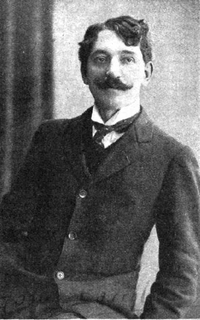 W
WEnrique Gómez Carrillo was a Guatemalan literary critic, writer, journalist and diplomat, and the second husband of the Salvadoran-French writer and artist Consuelo Suncin de Sandoval-Cardenas, later Consuelo Suncin, comtesse de Saint Exupéry, who in turn was his third wife; he had been previously married to intellectual Aurora Caceres and Spanish actress Raquel Meller.
 W
WMaría Dolores Bedoya de Molina was a Guatemalan activist. She is remembered for her role in the movement for Central America's independence from Spain in the early 19th century.
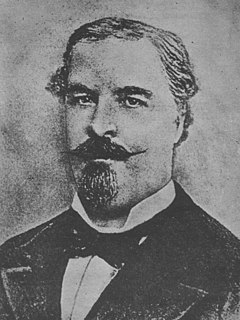 W
WJosé Milla y Vidaurre was a notable Guatemalan writer of the 19th century. He was also known by the name Pepe Milla and the pseudonym Salomé Jil. Son of a governor of the state of Honduras in the Federal Republic of Central America, José Justo de la Milla y Pineda and Mrs. Mercedes Vidaurre Molina, the daughter of a wealthy Guatemalan family. He was married to his cousin, Mercedes Vidaurre and had 7 daughters and sons.
 W
WLorenzo Montúfar y Rivera was a Guatemalan politician and lawyer. Superb leader and speaker, helped the liberal regime of Justo Rufino Barrios, served in the Guatemalan legislature, taught in the College of Law of the Universidad Nacional de Guatemala and, towards the end of his life, was a presidential candidate himself losing to general José María Reyna Barrios. He was also Foreign Secretary of Costa Rica in 1856 and from 1870 to 1873, and President of University of Saint Thomas, also in Costa Rica.
 W
WJosé María Orantes was a Guatemalan military man, appointed acting president of the Republic of Guatemala from 23 June 1882 to January 5, 1883.
 W
WManuel Francisco Pavón Aycinena was an influential conservative Guatemalan politician during the regime of General Rafael Carrera. Leader of the Aycinena family, was in charge of setting up the government executive branch during this period, holding practically all of the Cabinet offices over the years. The liberal historians portray him as a villain in a despotic and tyrannical government headed by illiterate Raca Carraca - Rafael Carrera; However, research conducted between 1980 and 2010 has shown a more objective biography of both Pavón and Rafael Carrera and show that it was in fact Carrera who had the reins of the Conservative government.
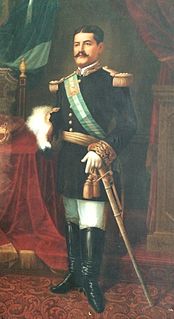 W
WJosé María Reyna Barrios was President of Guatemala from 15 March 1892 until his death on 8 February 1898. He was born in San Marcos, Guatemala and was nicknamed Reynita, the diminutive form, because of his short stature.
 W
WMariano Rivera Paz was Head of State of Guatemala and its first president.
 W
WAlejandro Manuel Sinibaldi Castro (1825–1896) was acting President of Guatemala from April 2, 1885, to April 5, 1885.
 W
WRafael Spínola was a writer, journalist, politician and public speaker from Guatemala. Director of the well known cultura magazine La Ilustración Guatemalteca in 1896 and 1897, was Secretary of Infrastructure in Manuel Estrada Cabrera first presidential term. He also created the "Fiestas Minervalias", which were a celebration to the studious youth and the president Estrada Cabrera rule. He was also the one that signed the treaty granting the American company "The Central American Improvement Co. Inc." to finish the Northern Railroad -which had been left unfinished after president José María Reina Barrios assassination on 8 February 1898–, which would be the stepping stone for the operations of the United Fruit Company in Guatemala. He was the father of Guatemalan poetesse Magdalena Spínola (1896–1991).
 W
WJosé Víctor Ramón Valentín de las Ánimas Zavala y Córdova was a Guatemalan Field Marshal who participated in the wars of Rafael Carrera and the National War of Nicaragua against the invasion of William Walker. After the death of President Carrera in April 1865, Zavala -who was a close friend of the late President - was proposed as the next president, but instead Field Marshal Vicente Cerna y Cerna was appointed. A military brigade headquarters in Guatemala City is named "Mariscal Zavala Brigade" in his honor.